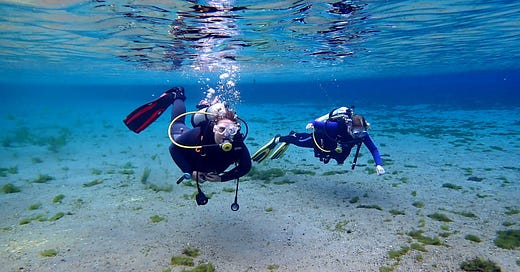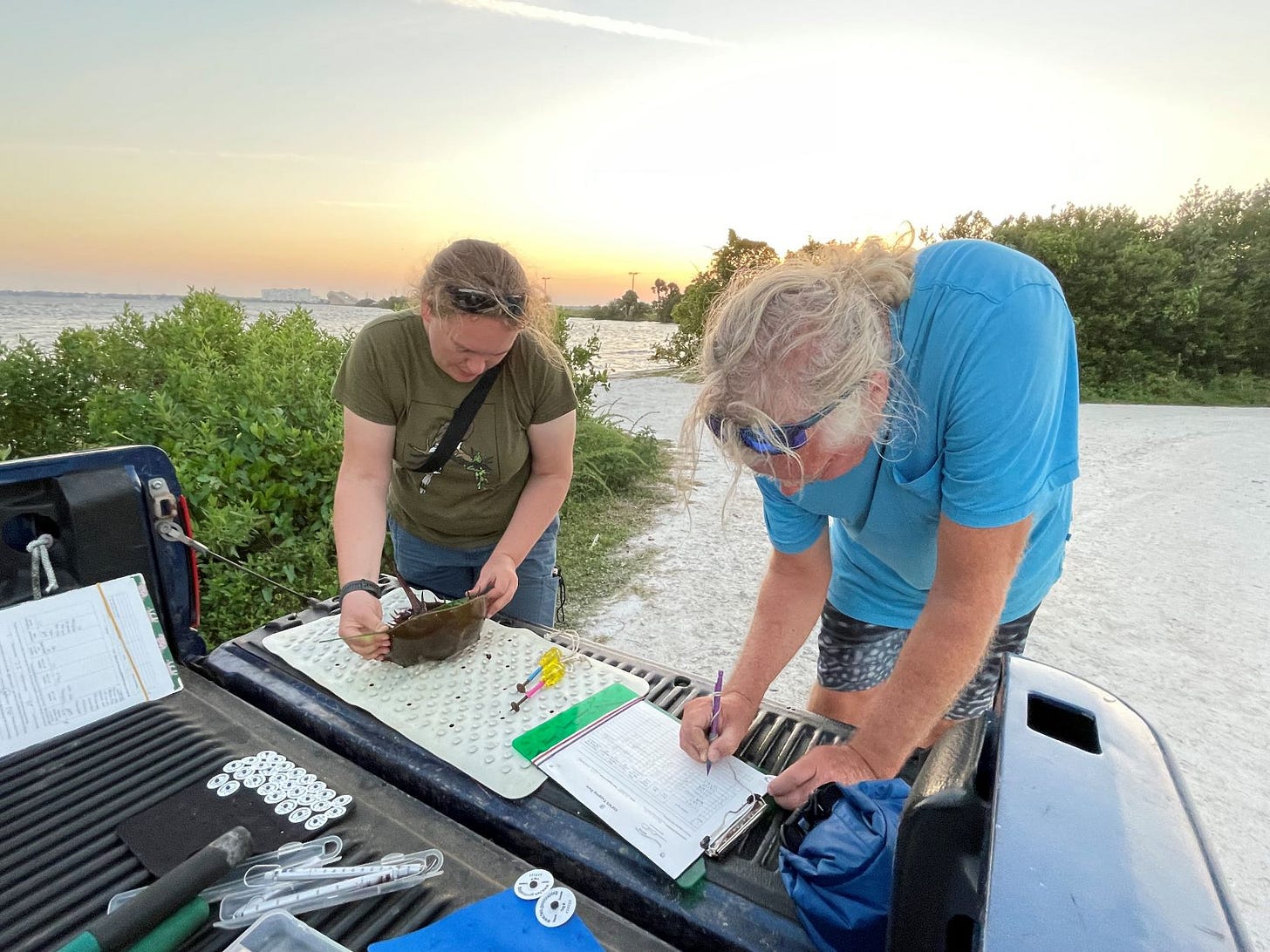I had a meeting yesterday with a friend who was interested in how I work with interns. Most conservation organizations rely on relatively inexpensive, if not free, labor from younger people that want to get into the field. There are a lot of paid jobs in conservation, but these often go to those that have experience and internships are one way in which you can find out if someone might work out in the long term as a team mate. Also for the intern, many think they want to be a marine biologist, but the reality often doesn’t meet the expectations or hopes. When I was a graduate student at Miami we would take the first year marine bio students down to the Florida Keys for a weekend of learning, snorkeling, kayaking, and living together at a research laboratory. I was always surprised at how many students changed their major after that weekend!
I am still processing a lot of my thinking about internships, but in the moment of explanation to my friend, three aspects to consider arose when planning how to develop these. First to note that I have decided against some sort of standard internship that is always the same. I find this uninteresting mainly and also unhelpful in my situation. Some bigger organizations or those that have standard project and programs that stay the same from year to year (yawn) can effectively develop and internship that essentially is just looking for people to plug into positions. Alternatively, like, I would say, the A Rocha Canada internship, the whole point of the internship program is the internship itself. This then is a very meaningful experience which can be somewhat standardized, but which entails its own staff and resources that focus on the internship, rather than having the interns folded into the conservation work of the organization. Those interns do assist in the conservation work, but the internship usually has priority. What I find most helpful for my situation is something more bespoke.
The three aspects of the internship that guide my thinking are: 1) my research needs at the time, 2) their experience, and 3) their time frame. The work that I guide both here in Florida and across the globe has a research and conservation agenda which, though it changes through time, is moving to answer certain questions and to collect information that helps to manage a particular area or species. Right now in Florida, my interns are involved in horseshoe crab surveys, mole crab surveys, microplastic research, and seahorse/pipefish research. If I had no interns, guess what I would be doing? Yes, the same. With the interns I can accomplish this more easily and more quickly, but this is the work that I think important for this place and this time. Current interns also volunteer with partner organizations that I have been volunteering with, alongside other interns and guests, for the past many years. These are real job for the interns that are important for local conservation.
The length of time someone is staying with me also heavily influences their role. I have had a number of young scientists either right out of university or in their latter years want to talk about the work that I do. I often say, come and see. If they can spare a week, then they usually just join in with what we are doing, with perhaps an intentional trip to the Springs thrown in. However, I usually want people to come for at least a month and three months is much better. This allows them to experience the full range of activities and I can often wave them off for a day of field work at the beach within several weeks. This also allows me to help them develop projects of interest to them – which also fit into longer term goals I have here about exploring new research ideas or techniques. Our current interns are helping me explore the value of 360 underwater photos and VR headsets for marine communication, for example.
Lastly, the amount of experience and intern has makes a big difference. Those coming out with university degrees still seem to need a good deal of direction compared to someone with a masters or doing their Ph.D. Something you would expect, but it leads me to prefer those pursuing higher degrees for interns as they often go above and beyond and do much more than asked and often in a better way than I would. I would also be happy to host Ph.D. students that want to pursue specific questions that I many not be interested in personally, but which might lead to interesting work and from whom I can learn something.
I am still leaning a lot about hosting and guiding interns. More in days to come about some of the ways in which interns have helped care for people and places where I am investing my life.







